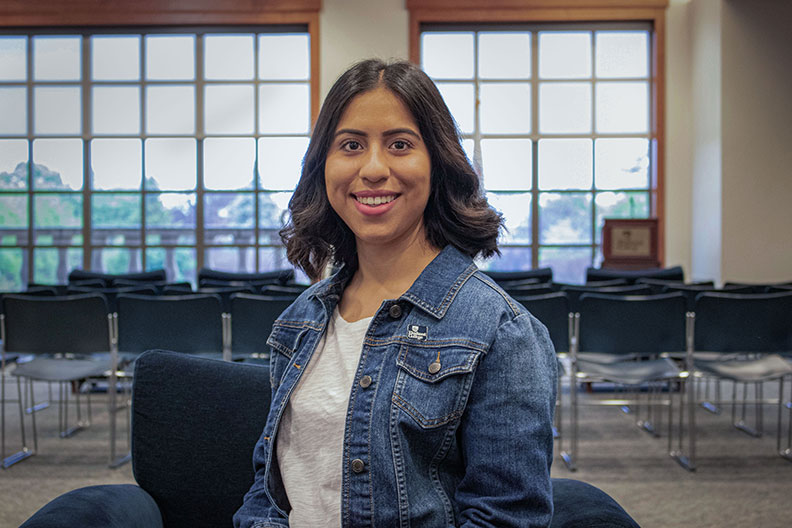Can Cognates Boost Cognition?
Ariana Cardenas ’20 explores new ways to help Spanish speakers who wish to learn English.

Ariana Cardenas ’20 was doing fieldwork in a local school last semester when she was assigned to work with two third-graders from Guatemala who didn’t speak English. Cardenas, a double major in communication sciences and disorders and intercultural studies, wasn’t sure where to begin.
“There’s not a lot of research on the best ways to help students who are coming here from other countries,” Cardenas says. “I was able to make some progress with those kids, but I could have done so much more if I’d had access to research-based strategies.”
This summer, Cardenas is doing her part to help close the research gap. With funding from the University’s Creative and Scholarly Endeavors (CASE) program, she’s studying how to help bilingual students build English skills by applying what they know from their first language.
“A lot of words have a common origin in English and Spanish,” she says. “My research analyzes the strategies used by Spanish-speaking children to build their English vocabularies.”
I’m very passionate about working with multicultural populations, so this research fits right in with what I want to do eventually.”
—Ariana Cardenas ’20
Cardenas’ research is part of a larger project conducted by graduate student Gemma Skokna and Brenda Gorman, chair of the Department of Communication Sciences and Disorders. Working with a local after-school program, Skokna taught bilingual children to recognize cognates, words that are related by descent from the same language. Cardenas will then analyze the transcriptions of each intervention session to see how the children responded to the cognate training.
In addition to the hands-on sessions with children, Cardenas is exploring the existing research—and discovering that what she’s doing hasn’t been done before.
“I’ve found research on reading strategies, language and cognition, but nothing that addresses what I’m doing in regards to cognate training,” she says. “It’s pretty cool to know that I’m doing something completely new.”
“I didn’t realize the impact this project would have on me,” Cardenas says. “I can already see how it’s changing my perspective and solidifying what I want to do. To know that I’m doing everything I can to help my future clients feels amazing.”
See what others are studying this summer
Posted July 19, 2019